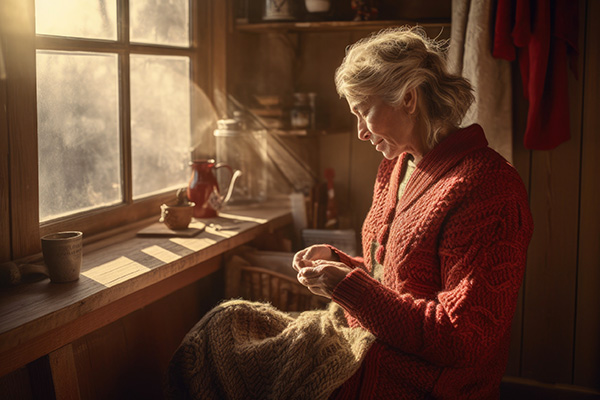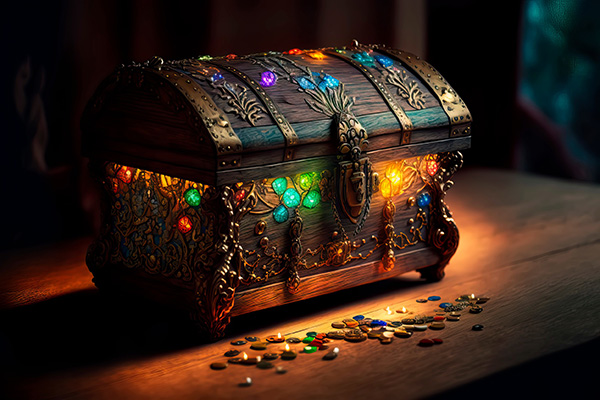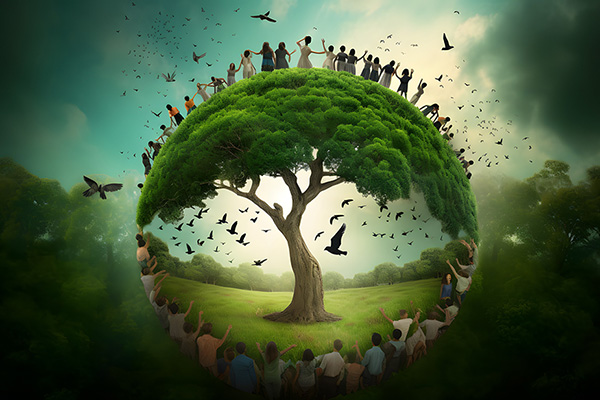legacy
A Fabulous Life Beyond Limiting Beliefs
 Many people go through life without ever questioning, let alone challenging, the limiting beliefs they were taught since childhood. They blindly follow whatever their family, community, or culture prescribe, often without realizing it.
Many people go through life without ever questioning, let alone challenging, the limiting beliefs they were taught since childhood. They blindly follow whatever their family, community, or culture prescribe, often without realizing it.
Some of these limiting beliefs have been passed down through generations, remaining unchanged for thousands of years. If we never stop to examine these inherited mindsets, we remain trapped in limited thinking – always confined within the box.
I often find people are stuck in the emotional patterns and thought habits of their parents or grandparents.
For example, those whose families lived through the Great Depression, or who endured scarcity of food, heat, or other basic necessities, may feel compelled to save everything.
What if I need it someday? I paid so much for it, and it’s still perfectly good to keep. What if… what if…
A good example here where I live in the state of Maine is when an old Northeaster storm is supposed to come, bringing in double digit inches of snow.
Some folks then panic and rush to the nearest grocery store and stock up on two or three of the same items, because what if I can’t get out again for two weeks? Which, as a matter of fact, has never happen in my lifetime! Realistically you may only be marooned a day or two at the most in most parts of Maine.
The Soul Legacy Of A Life Well-Lived
 It is natural for spiritually aware people to reflect on the lives we live and the impact we have on the world. We often ask ourselves, are we making a difference? Is our contribution meaningful? How well are we serving our family, community, nation, environment, spirit, the divine?
It is natural for spiritually aware people to reflect on the lives we live and the impact we have on the world. We often ask ourselves, are we making a difference? Is our contribution meaningful? How well are we serving our family, community, nation, environment, spirit, the divine?
Some people’s legacies are marked by awards, innovations, or public achievements. Some live their lives as great inventors, artists, scientists, philosophers, activists, spiritual leaders, leaving a measurable trail of impact to make the world a better place.
The names of those with such remarkable legacies are etched in history books, and their contributions change the course of societies and industries. We witness their contributions in news headlines and biopics, and learn about them in books and classrooms.
But these remarkable individuals represent only a small minority of humanity. What about the rest of us?
What about those of us who get up every day, not to chase fame or fortune, but to fulfill the humble, yet noble responsibilities of everyday life — raising children, maintaining a home, showing up for work with integrity, running a small business with courage, caring for neighbors, rescuing animals in need?
For most spiritual seekers, our life’s legacy is not about accolades or recognition. It is simply a reflection of the heart, a matter of daily presence, generosity, kindness and compassion, and the quiet ripples of goodness we send out into the world.
Honor Your Pagan Heritage This Halloween
 Samhain holds special significance for those who practiced paganism in a past life, especially those who were involved in magical practices as seers, soothsayers, druids, and witches.
Samhain holds special significance for those who practiced paganism in a past life, especially those who were involved in magical practices as seers, soothsayers, druids, and witches.
For us, this time of year evokes a deep sense of nostalgia, spiritual reorientation, and a return to ancient wisdom as the veil between worlds thins and we reconnect with our ancestors and the spirit realms.
Samhain is an ancient Celtic festival marking the end of the harvest season and the beginning of winter, traditionally celebrated from October 31 to November 1. It is one of the four great Gaelic seasonal festivals, along with Imbolc (February 1), Beltane (May 1), and Lughnasadh (August 1).
In Celtic tradition, Samhain (pronounced “sow-in”) is a liminal time when the boundary between the physical and spiritual worlds is thinner, allowing the spirits of our deceased loved ones, ancestors, and other spirits to cross over more easily.
In ancient times people would light fires and wear costumes to ward off harmful spirits, while also honoring their ancestors with offerings of food and drink.
Samhain is considered the origin of modern Halloween traditions, although Halloween has evolved and incorporated elements from other cultures to become a mostly secular and commercial holiday. For Neopagans and Wiccans, Samhain remains an important festival for honoring the dead, celebrating the cycle of life, death, and rebirth, and connecting more deeply with the spirit realm.
Grieving The Loss Of Loved Ones With Grace
 Few of us have not experienced the loss of a loved one, a parent, a partner or even a child. Most of us have also witnessed or experienced the many ways in which people try to cope with such an insurmountable loss.
Few of us have not experienced the loss of a loved one, a parent, a partner or even a child. Most of us have also witnessed or experienced the many ways in which people try to cope with such an insurmountable loss.
Coping with the huge gaping hole that such a loss leaves in our lives can have a negative impact on people’s behaviour. Some turn to extremes: alcohol, drug abuse, overeating, prescription drugs, or any of the other things people use to numb their pain and deflect the overwhelming feelings associated with loss and grief.
What we ultimately learn is that there is no set time frame in which such profound pain can be dealt with. It can take weeks, months, years or even decades for some. But even when the worst is over, we never really get over the sense of loss. We simply learn to cope and get on with our lives, forever changed, as best we can.
However, the greatest tribute we can pay the loved ones we have lost is to grieve with grace and dignity. Abusing substances or indulging in other distractions may temporarily numb our pain, but how does that honour the memory of the one we professed to care so much about? It also does not allow us to confront and process our emotions in a healthy and constructive manner. Grieving is natural and necessary. When we try to avoid our grief, we miss out on opportunities for personal growth, self-reflection, and ultimately finding peace with the loss.


